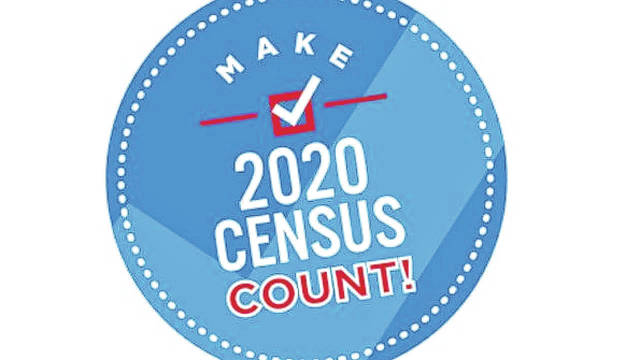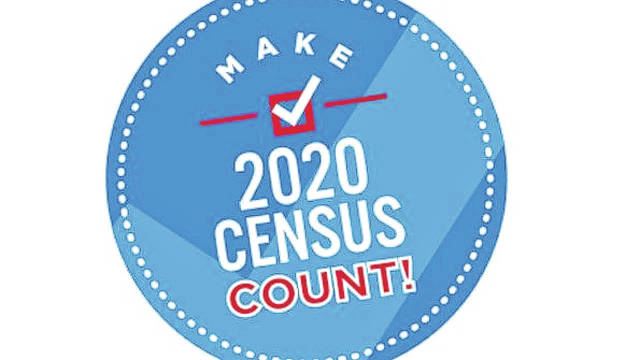ROCKINGHAM — It is just about time for America to stand up and be counted.
And encouraging residents to participate is the goal of a program spearheaded by Tracy Parris, who serves as the Richmond County Planning Director.
“Every 10 years there has to be a census taken,” Parris told the Board of County Commissioners at this month’s meeting. “It’s in the constitution.”
Parris presented the board with both a short film and printed materials supplied by U.S. Census Bureau to amplify the importance of the date collected, and to dispell several myths people have regarding the information collected.
For example, health clinics, fire departments, schools and even road and highway funding is contingent on the census statistics. Census results help determine how billions of dollars in federal funding flow into states and communities each year, and the results determine how many seats in Congress each state gets, Parris explained.
Many who are in the United States illegally are afraid of participating in the census, Parris said, because they feel the information may be used against them and get them deported. But this is simply not possible. The personal information is kept confidential. The Census Bureau is bound by federal law to protect the information, and the data is used only for statistical purposes, the information stated.
The Census Bureau is bound by Title 13 of the U.S. Code to keep the information confidential.
Under Title 13, the Census Bureau cannot release any identifiable information people, their homes, or their businesses, even to law enforcement agencies. The law ensures that private data is protected and that answers cannot be used against someone by any government agency or court.
The answers provided are used only to produce statistics. Those participating are kept anonymous: The Census Bureau is not permitted to publicly release responses in any way that could identify someone, Parris’ data showed.
So what kind of questions does the Census ask? Parris had those answers, too.
The 2020 Census will ask:
• How many people are living or staying at your home as of April 1, 2020? This will help get an accurate estimation of the U.S. population.
• Is your home owned or rented? This will help us produce statistics about homeownership and renting. The rates of homeownership serve as one indicator of the nation’s economy. They also help in administering housing programs and informing planning decisions.
• What is the sex of each person in your home? This allows us to create statistics which can be used in planning and funding government programs. This data can also be used to enforce laws, regulations, and policies against discrimination.
• What is the age of each person in your home? The U.S. Census Bureau creates statistics to better understand the size and characteristics of different age groups. Agencies use this data to plan and fund government programs that support specific age groups, including children and older adults.
• What is the race of each person in your home? This data helps federal agencies monitor compliance with anti-discrimination provisions, such as those in the Voting Rights Act and the Civil Rights Act.
• Is a person in your home of Hispanic, Latino, or Spanish origin? These responses help create statistics about this ethnic group. This is needed by federal agencies to monitor compliance with anti-discrimination provisions, such as those in the Voting Rights Act and the Civil Rights Act.
• What is the nature of the relationships between each person in your home? This allows the Census Bureau to create estimates about families, households, and other groups. Relationship data is used in planning and funding government programs that support families, including people raising children alone, according to the information provided by the Census Bureau.
During the 2020 Census, the Census Bureau will never ask you for:
• Your Social Security number.
• Money or donations.
• Anything on behalf of a political party.
• Your bank or credit card account numbers.
If someone claiming to be from the Census Bureau contacts you via email or phone and asks you for one of these things, it’s a scam, and you should not cooperate, the information emphasized.
In need of some extra cash?
The Census allows residents to earn extra income while helping the community. The Bureau is recruiting to fill hundreds of thousands of positions across the country to assist with the 2020 Census count. For more information, go to: https://2020census.gov/en/jobs/how-to-apply.html.
Overall Timeline:
Counting every person living in the United States is a massive undertaking, and efforts begin years in advance. Here’s a look at some of the key dates along the way, as outlined by the Census Bureau:
January–September 2019: The U.S. Census Bureau opens 248 area census offices across the country. These offices support and manage the census takers who work all over the country to conduct the census.
August 2019: Census takers begin visiting areas that have experienced a lot of change and growth to ensure that the Census Bureau’s address list is up to date. This is called address canvassing, and it helps to ensure that everyone receives an invitation to participate in the 2020 Census.
January, 2020: The Census Bureau begins counting the population in remote Alaska.
April 1, 2020: Census Day is observed nationwide. By this date, every home will receive an invitation to participate in the 2020 Census. Once the invitation arrives, you should respond for your home in one of three ways: online, by phone, or by mail. When you respond to the census, you tell the Census Bureau where you live as of April 1, 2020.
April 2020: Census takers begin visiting college students who live on campus, people living in senior centers, and others who live among large groups of people. Census takers also begin conducting quality check interviews to help ensure an accurate count.
May 2020: The Census Bureau begins visiting homes that haven’t responded to the 2020 Census to make sure everyone is counted.
December 2020: The Census Bureau delivers apportionment counts to the President and Congress as required by law.
March 31, 2021: By this date, the Census Bureau will send redistricting counts to states. This information is used to redraw legislative districts based on population changes.
The Richmond County Commissioners unanimously approved a county-wide effort to promote participating in the 2020 Census.


